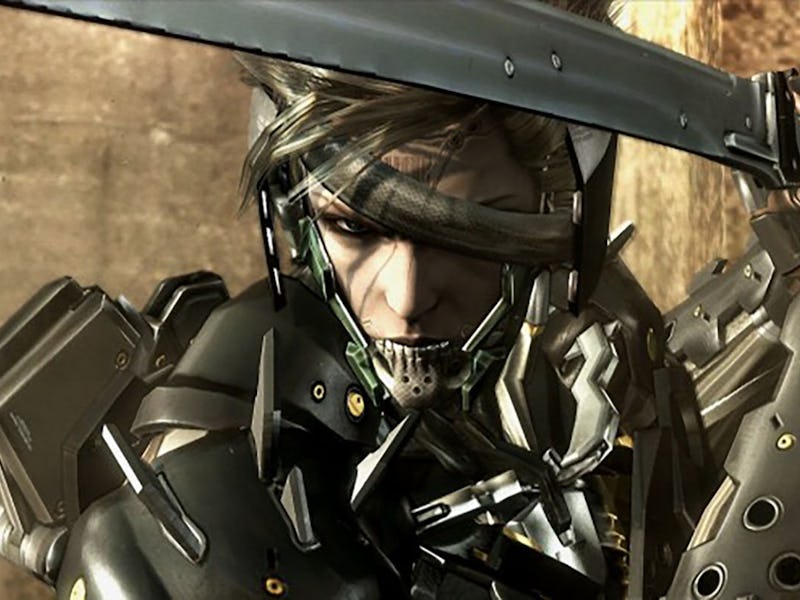How Metal Gear Rising: Revengeance Defied Expectations — And Still Delivered
A hack-and-slash extravaganza.

When anyone mentions Konami’s Metal Gear series created by gaming auteur Hideo Kojima, fans often think of elaborate stealth strategies, delightfully absurd cutscenes, and an increasingly cynical, gravelly-voiced Solid Snake. Since the release of the first Metal Gear in 1987, Konami has woven an unshakeable franchise legacy, one that meditates on the philosophies of battle while popularizing stealth mechanics that feel integral to the storyline. However, among the 17 Metal Gear games available, only one stands out as an unforgettable anomaly. I’m talking about the absolutely bonkers, endlessly enjoyable Metal Gear Rising: Revengeance.
Revengeance isn’t technically a Konami game. While Konami retained control of the narrative (the events take place four years after that of Metal Gear Solid 4: Guns of the Patriots) and published this project, PlatinumGames took on development and introduced noticeable changes to the franchise’s DNA and gameplay. Kojima still worked on the game as well but as a designer rather than director. The result is a no-holds-barred hack-and-slash extravaganza with katana-wielding cyborg Raiden going berserk at the epicenter of this chaos.
Metal Gear Rising: Revengeance is a no-holds-barred hack-and-slash extravaganza.
A former Liberian child soldier turned secret agent, Raiden was originally introduced as the protagonist of Metal Gear Solid 2: Sons of Liberty and later appeared as a supporting character in Guns of the Patriots. (His first appearance was a tightly kept secret, and some fans complained that MGS2 forced them to play as Raiden instead of series standby Solid Snake.)
At the start of Revengeance, Raiden is working for the private military company Maverick Security. The game begins as he rides in a limo with Prime Minister N’Mani while they banter about conflict and philosophy. But when a group of samurai cyborgs violently ambush the motorcade, Raiden does what anyone else would do in such a situation: He flings his corporate suit into the air with a flourish, revealing an immaculate cybernetic body, replete with a retractable tech eyepatch he uses to hone in on the enemy.
Unlike other Metal Gear games that emphasize snooping around to complete missions, Revengeance engages in direct, unflinching confrontation where Raiden uses his blade to rapidly cut through enemies. Players can alternate between Light and Heavy Attacks to strike a balance between inflicting quick and sustained damage, which comes in handy during melee combat. However, when Raiden enters the special Blade Mode, players can trace the trajectory of their quick, violent slashes and hit vulnerable enemy spots by entering a brief period of bullet time.
Forget sneaking around, MGR: Revengeance gets right in your face.
The aesthetics of Blade Mode feel effortlessly cool and flashy no matter how many times Raiden uses it, which is all the more reason to flex it whenever possible. This strategy is foolproof from the start when Raiden goes up against a Metal Gear RAY (UMG) and has to free-blade his way through the boss fight while evading locked missile trajectories (which can also be hacked and slashed before they explode).
While there is value in learning how to parry and counterattack to trigger new moves and combos, such dedicated diligence is not terribly essential, save for a few tight spots during the last string of boss fights. This freedom, combined with generous health recharge and weapon drops, transforms Raiden into a one-man unit who can viciously slice through everything in sight — sentient or inanimate.
Memes are the DNA of the soul.
Cathartic combat systems and cinematic executions aside, MGR: Revengeance props up a convoluted tale about corrupt PMCs and the rise of questionable nanomachine technology championed by those who wish to foster conflict. This sentiment manifests in the most unbelievably meme-worthy dialogue throughout the game, consciously crafted to tap into the brand of endearing absurdity that the Metal Gear series has always embraced with pride. Antagonists like Sundowner hit us with lines like, “How's an honest warmonger supposed to make a living?” right before murdering a key political figurehead. Meanwhile, Monsoon, a ninja-cyborg boss, imparts these pearls of wisdom while debating with an agitated Raiden: “Free will is a myth. Religion is a joke. We are all pawns, controlled by something greater: Memes, the DNA of the soul. They shape our will.”
This is just a taste of the absolute absurdity that is Metal Gear Rising: Revengeance, which can only be described as an exhilarating ride with no emergency brakes or safety harnesses. When the game’s wonky camera swivels out of control after Raiden takes a hit or is blasted backward, the goal is to keep hacking through cyborgs while jamming out to the kinetic speed metal soundtrack blaring in the background. As Raiden faces the final boss, who keeps talking about nanomachines and the American Dream for some reason, the world suddenly becomes his stage, reshaped in the ire of revengeance.